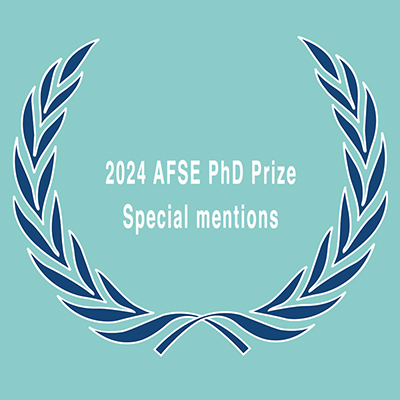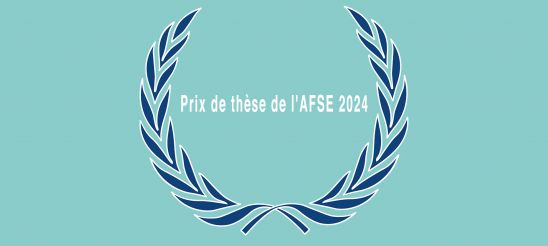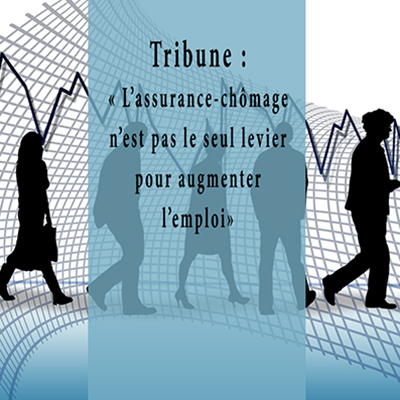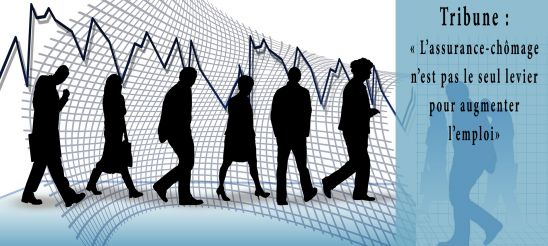17 Jul 2024
GAIMSS’24 un évènement organisé par Simon Finster, Felipe Garrido-Lucero, Atulya Jain et Emilien Macault.
Publié le 11/07/2024 dans Factuel, l’info de l’Université de Lorraine
GAIMSS’24 un évènement organisé par Simon Finster, Felipe Garrido-Lucero, Atulya Jain et Emilien Macault.
Publié le 11/07/2024 dans Factuel, l’info de l’Université de Lorraine
Left Over or Opting Out? Squeeze, Mismatch and Surplus in Chinese Marriage Markets
CREST Working Papers Series No. 2024-08
by Pauline Rossi and Yun Xiao
VoxEU Column Central bankers and trade ministers: How monetary policy can prevent trade wars by Stephane Auray, Michael B Devereux and Aurélien Eyquem
10 Jul 2024
2024 AFSE PhD Prize Special mentions
Congratulations to Léa BOU SLEIMAN who received the special mention of the AFSE 2024 Prize for her thesis “Essays in Urban and Environmental Economics”.
2024 AFSE PhD Prize Special mentions
Congratulations to Léa BOU SLEIMAN who received the special mention of the AFSE 2024 Prize for her thesis “Essays in Urban and Environmental Economics”.
DP19144 The Negligible Effect of Free Contraception on Fertility: Experimental Evidence from Burkina Faso by Pascaline Dupas Seema Jayachandran Adriana Lleras-Muney Pauline Rossi
Une tribune de Roland Rathelot, Thomas Le Barbanchon, et Alexandra Roulet pour le journal Le Monde.
Roland Rathelot enseignant-chercheur en économie au CREST-ENSAE Paris, a co-écrit une étude révélatrice avec Thomas Le Barbanchon et Alexandra Roulet sur l’impact des critères d’allocation de l’assurance-chômage sur le comportement des chômeurs.
Leurs recherches montrent que durcir les conditions d’éligibilité et réduire la durée des allocations peut diminuer la durée du chômage. Cependant, cela pourrait également exacerber les difficultés pour certaines populations, notamment les jeunes et ceux avec des parcours professionnels hachés.
Réduire la durée d’indemnisation ne semble pas affecter les salaires des nouveaux emplois retrouvés, mais les périodes prolongées de chômage peuvent entraîner une baisse des salaires.
L’étude met en avant la nécessité de calibrer finement ces réformes pour équilibrer les avantages sur l’emploi et les risques accrus de pauvreté. Il est essentiel de continuer à évaluer et ajuster ces politiques pour soutenir efficacement le marché du travail tout en protégeant les plus vulnérables.
Lien vers la tribune du journal Le Monde : https://www.lemonde.fr/idees/article/2024/06/14/l-assurance-chomage-n-est-pas-le-seul-levier-pour-augmenter-l-emploi_6239907_3232.html
Lien vers la publication liée à la tribune : Unemployment Insurance and Reservation Wages: Evidence from Administrative Data, with Thomas Le Barbanchon and Alexandra Roulet, Journal of Public Economics, 171, pp. 1-17, March 2019
Une tribune de Roland Rathelot, Thomas Le Barbanchon, et Alexandra Roulet pour le journal Le Monde.
Roland Rathelot enseignant-chercheur en économie au CREST-ENSAE Paris, a co-écrit une étude révélatrice avec Thomas Le Barbanchon et Alexandra Roulet sur l’impact des critères d’allocation de l’assurance-chômage sur le comportement des chômeurs.
Leurs recherches montrent que durcir les conditions d’éligibilité et réduire la durée des allocations peut diminuer la durée du chômage. Cependant, cela pourrait également exacerber les difficultés pour certaines populations, notamment les jeunes et ceux avec des parcours professionnels hachés.
Réduire la durée d’indemnisation ne semble pas affecter les salaires des nouveaux emplois retrouvés, mais les périodes prolongées de chômage peuvent entraîner une baisse des salaires.
L’étude met en avant la nécessité de calibrer finement ces réformes pour équilibrer les avantages sur l’emploi et les risques accrus de pauvreté. Il est essentiel de continuer à évaluer et ajuster ces politiques pour soutenir efficacement le marché du travail tout en protégeant les plus vulnérables.
Lien vers la tribune du journal Le Monde : https://www.lemonde.fr/idees/article/2024/06/14/l-assurance-chomage-n-est-pas-le-seul-levier-pour-augmenter-l-emploi_6239907_3232.html
Lien vers la publication liée à la tribune : Unemployment Insurance and Reservation Wages: Evidence from Administrative Data, with Thomas Le Barbanchon and Alexandra Roulet, Journal of Public Economics, 171, pp. 1-17, March 2019






